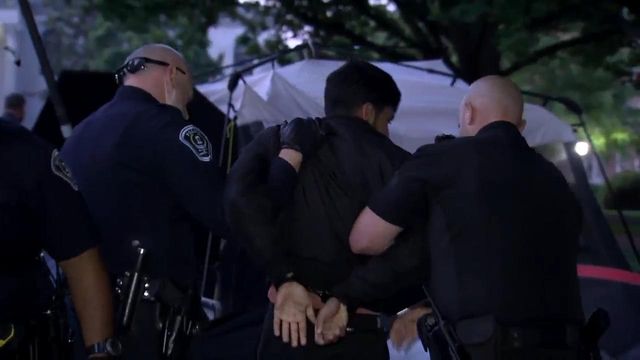Lawmakers Look to Legalize Online Scalping
Tickets to big games like Wednesday night's Duke-Carolina basketball clash are like gold, and state lawmakers are considering a proposal to make them more readily available to people willing to pay top-dollar to get them.
North Carolina law says that anyone who's not licensed by the promoter may not resell tickets to an event for more than $3 above face value. A bill pending in the General Assembly would partially remove that restriction and legalize online scalping.
"Why should there be a law about scalping anyway? Why should we not just let people sell things for what they want to sell it for?" asked state Rep. Paul Stam, R-Wake.
Unlike bygone days whn people would stand outside arenas to hawk a handful of tickets, most people now go through Internet resellers like StubHub and RazorGator.
"What was previously referred to as scalping has now been legitimized," StubHub spokesman Sean Pate said. "The restrictions that are put on ticket resale were done so decades ago and are painfully outdated."
For games like Duke-Carolina, for example, big university donors get ticket preference, Pate said, and StubHub resales make those tickets available to anyone willing to pay the market price.
Despite North Carolina's scalping law, tickets to the Duke-Carolina basketball games in Chapel Hill and Durham were offered for sale online for $2,000 or more – 50 times the face value of a ticket to Wednesday's game at the Dean Smith Center.
"I don't like it, but you just do what you got to do if it's that important to you," ticket-buyer Gary Jenkins said.
Josh Stein, who directs the Consumer Protection Division of the state Attorney General's Office, said prosecution of illegal scalping is up to local law enforcement. Because police often have more pressing priorities, crackdowns are rare and are typically driven by complaints, he said.
"Not that many people complain. Most people who end up buying them do so willingly," Stein said.
Police said the most common complaint about street scalping is fraud.
One provision of the pending bill calls for online resellers to guarantee the tickets so that buyers could get a refund if the event is canceled. Another would limit the number of tickets any individual could purchase for resale.
Some parents recently complained, for example, when scalpers scooped up tickets to a Hannah Montana concert in Greensboro and jacked up the price. During the Carolina Hurricanes' Stanley Cup run two years ago, the same type of thing happened, and the team responded by voiding some online tickets.









